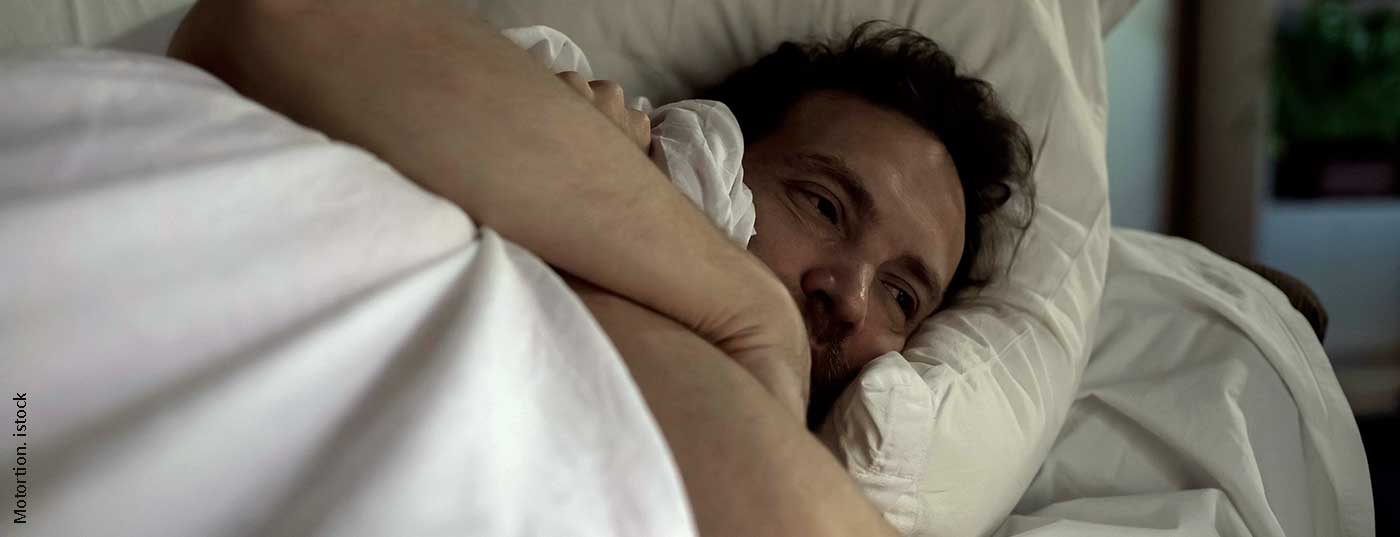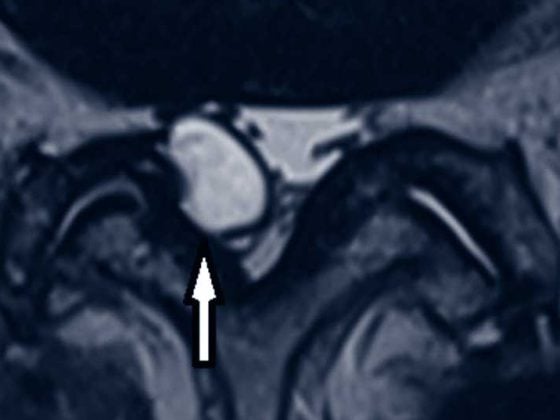Sleep disturbance is one of the cardinal diagnostic criteria for subthreshold anxiety and generalized anxiety disorders. It is estimated that more than two-thirds of all patients with generalized anxiety disorder suffer from insomnia. However, restless or unsatisfactory sleep not only has a significant impact on the main disease, but also on the quality of life. Effective treatment of comorbidity is therefore a top priority.
Difficulty falling asleep or sleeping through the night or early awakenings are familiar to almost every adult. However, if these disturbances persist, the lack of sleep can be quite debilitating. Researchers have demonstrated that patients with anxiety disorders in particular are at great risk of developing comorbid insomnia – the older the patients, the higher the likelihood [1]. In particular, delayed sleep onset and increased or early awakenings are among the most common symptoms [2]. Moreover, sleep laboratory studies have shown that not only total sleep time but also sleep efficiency is significantly reduced [3]. Also, as far as anxiety disorder per se is concerned, patients with comorbid insomnia are at a disadvantage, showing a less favorable course and prognosis than patients without sleep disorder [4]. Effective treatment of insomnia is therefore also an important goal in the therapeutic management of anxiety disorders. Selective serotonin reuptake inhibitors (SSRIs), serotonin-norepinephrine reuptake inhibitors (SNRIs), and pregabalin are recommended for first-line pharmacologic treatment. Another option is phytotherapy with lavender. Its calming and sleep-inducing properties have been known for centuries. The oil from Lavandula angustifolia (Silexan®), for example, causes, among other things, a strong inhibition of the voltage-dependent calcium channels in the synapses and primary neurons of the hippocampus, which leads to an attenuation of the exuberant reaction of the central nervous system. In addition, it significantly reduces 5-HT1A binding potential in multiple brain circuits, leading to an increase in extracellular serotonin levels. This explains the anxiolytic effect of the herbal drug [5].
Need for intervention also in subsyndromal anxiety disorder
What is often overlooked is the fact that problems do not first arise with generalized anxiety disorder, but action is already needed with subsyndromal anxiety disorder. Here, patients show several clinically relevant symptoms but do not fulfill the diagnostic spectrum of a generalized anxiety disorder. A post-hoc mediation analysis further elucidated the extent of the positive effect of lavender oil on disturbed sleep and reduction of anxiety symptoms [6]. This was based on a prospective, randomized, double-blind, group-controlled, impact study involving 212 patients who received either the phytopharmaceutical or placebo for ten weeks. Anxiety and sleep disturbances were verified with the Hamilton Anxiety Scale (HAMA) and the Pittsburgh Sleep Quality Index (PSQI), respectively. Compared to placebo, the oil significantly reduced total HAMA (p<0.001) and PSQI (p=0.002) scores after ten weeks. Clinically significant differences in the treatment groups were observed after two and six weeks, respectively. This showed that 98.4% of the total effect on disturbed sleep could be explained by the effect on anxiety symptoms, while only 1.6% was due to a direct effect. This indicates that the effect is almost exclusively due to the anxiolytic effect and is not caused by sedation.
Literature:
- Holsboer-Trachsler E, Prieto R: Effects of pregabalin on sleep in generalized anxiety disorder. International Journal of Neuropsychopharmacology 2013; 16(4): 925-936.
- Bélanger L, Morin CM, Langlois F, Ladouceur R: Insomnia and generalized anxiety disorder: effects of cognitive behavior therapy for gad on insomnia symptoms. J. Anxiety Disord. 2004; 18(4): 561-571.
- Papadimitriou GN, Kerkhofs M, Kempenaers C, Mendlewicz J: EEG sleep studies in patients with generalized anxiety disorder. Psychiatr. Res. 1988; 26 (2): 183-190.
- Cox RC, Olatunji BO: A Systematic Review of Sleep Disturbance in Anxiety and Related Disorders. J Anxiety Disord 2016; 37: 104-129.
- Möller HJ, Volz HP, Dienel A, et al: Efficacy of Silexan in subthreshold anxiety: meta-analysis of randomised, placebo-controlled trials. Eur. Arch. Psychiatry Clin. Neurosci. 2019; 269(2): 183-193.
- Seifritz E, Schläfke S, Holsboer-Trachsler E: Beneficial effects of Silexan on sleep are mediated by its anxiolytic effect. Journal of Psychiatric Research 2019; 115: 69-74.
InFo NEUROLOGY & PSYCHIATRY 2020; 18(4): 19.











